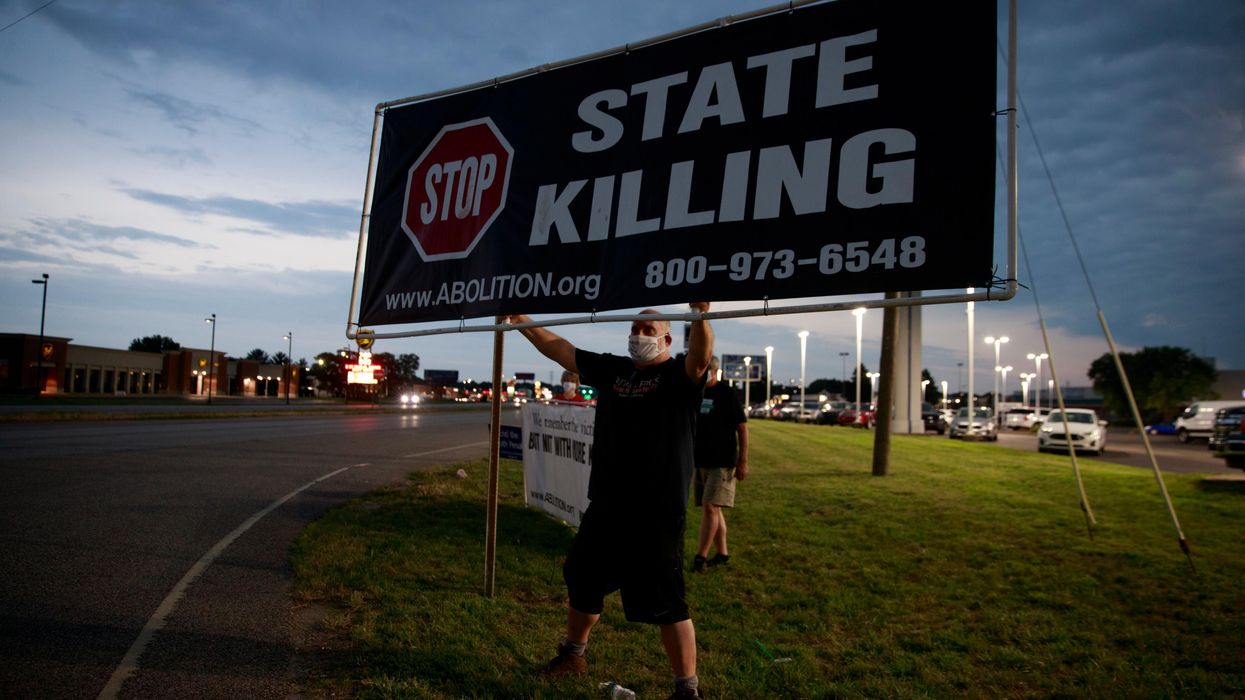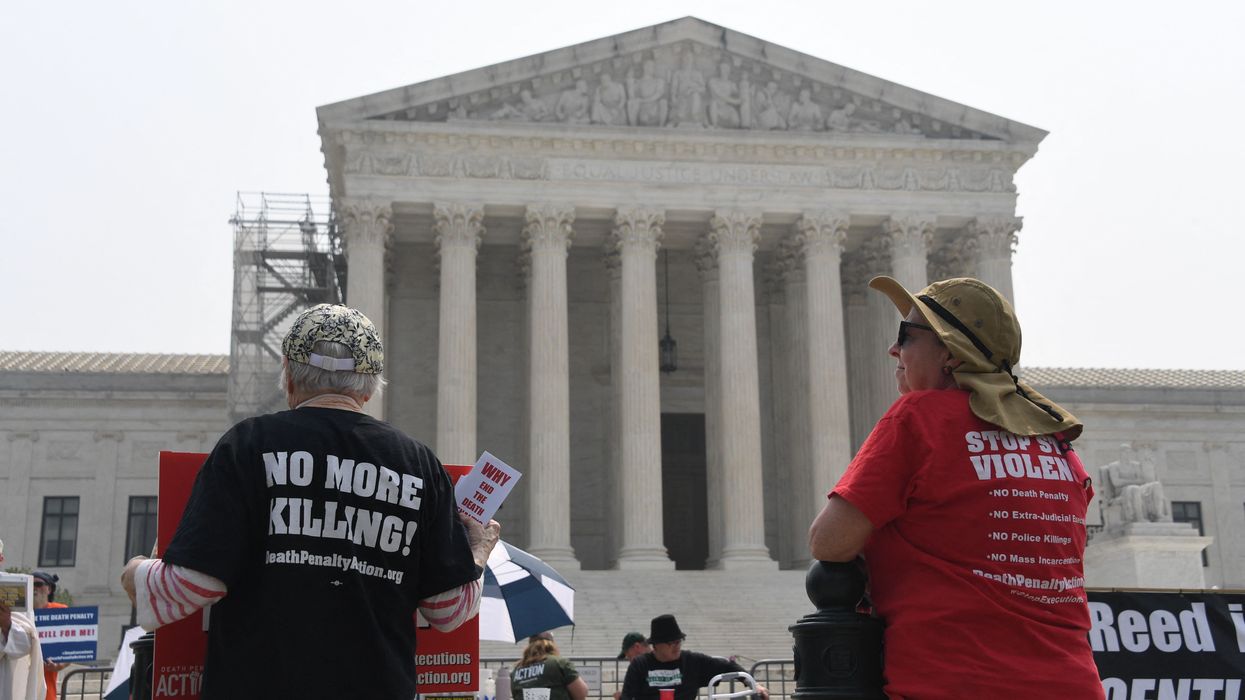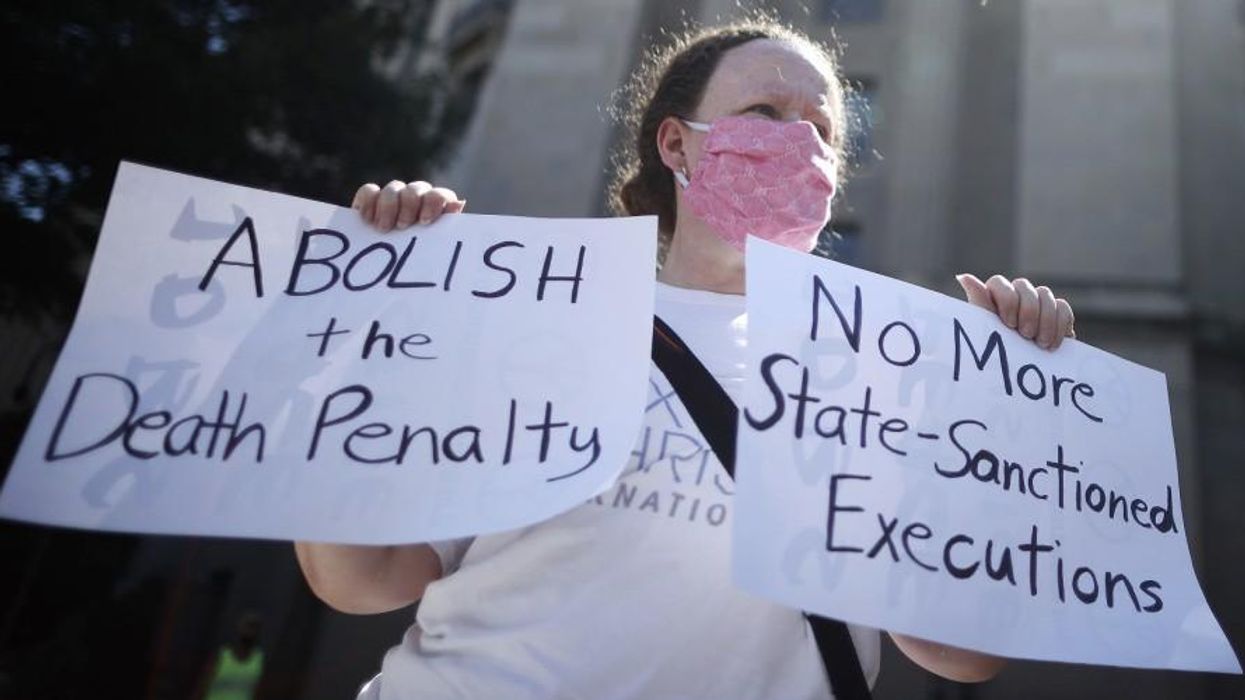"Tonight, Alabama caused humanity to take a step backwards," Smith said in his final statement. "I'm leaving with love, peace, and light. Thank you for supporting me, love all of you."
Smith was first convicted and sentenced to death in 1989 for the murder-for-hire killing of Elizabeth Sennett in 1988, a crime committed when he was 22 years old. That conviction was overturned, but he was convicted again seven years later, with the jury recommending a life sentence.
An Alabama judge, N. Pride Tompkins, then did something that used to be relatively common in the state but was banned in 2017: He overrode the jury, sentencing Smith to death.
Alabama's decision to kill Smith by flooding his lungs with nitrogen—a method that veterinarians consider unethical for euthanizing animals—drew global condemnation, with United Nations experts warning the execution would likely violate both U.S. and international laws against torture.
"I deeply regret the execution of Kenneth Eugene Smith in Alabama despite serious concerns this novel and untested method of suffocation by nitrogen gas may amount to torture, or cruel, inhuman, or degrading treatment," Volker Türk, the U.N. high commissioner for human rights, said in a statement.
"The death penalty is inconsistent with the fundamental right to life," he continued. "I urge all states to put in place a moratorium on its use, as a step towards universal abolition."
Earlier this week, Alabama residents gathered outside the state's Capitol building in Montgomery to protest the planned execution of Smith. One demonstrator held a sign that read, "Say no to the gas chamber!"
Capital punishment has been declining in popularity in the U.S. for decades, but states like Alabama and Oklahoma have continued executing inmates even as pharmaceutical companies and equipment manufacturers have made it increasingly difficult to obtain materials necessary for lethal injections. The Trump administration worked for years to build a "secret supply chain" for lethal-injection drugs before its 2020 execution spree.
Three U.S. Supreme Court justices—Sonia Sotomayor, Ketanji Brown Jackson, and Elena Kagan—dissented from the decision to reject the final attempt to halt Smith's execution.
"Smith is the first person in this country ever to be executed this way," Sotomayor wrote. "The details are hazy because Alabama released its heavily redacted protocol under five months ago. What Smith knows is that he will be strapped to a gurney. He will wear a nitrogen-supplying, off-the-rack mask for which the state has not fitted him or even tried on him."
"Having failed to kill Smith on its first attempt, Alabama has selected him as its 'guinea pig' to test a method of execution never attempted before," the justice added. "The world is watching. This court yet again permits Alabama to 'experiment... with a human life,' while depriving Smith of 'meaningful discovery' on meritorious constitutional claims."
President Joe Biden vowed to work toward abolition of the death penalty at the federal level during his 2020 campaign, but advocates say he has done virtually nothing to fulfill that pledge. The Biden Justice Department has continued to seek the death penalty in select cases and fight efforts to reverse death sentences.
Rep. Ayanna Pressley (D-Mass.), the lead House sponsor of legislation that would end the federal death penalty, called Smith's execution "absolutely unconscionable."
"We must work to abolish the death penalty and end this cruel and inhumane punishment," Pressley wrote on social media.




